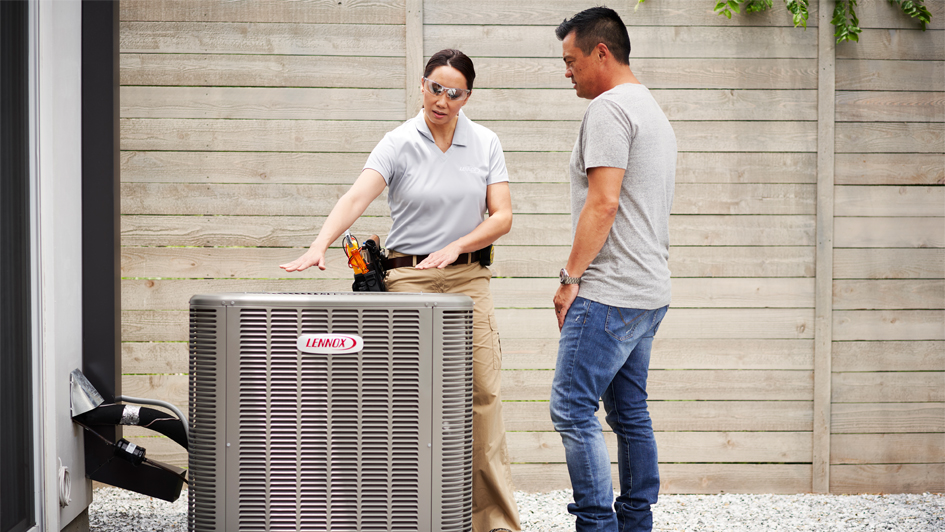
Choosing the appropriate HVAC system size for your home is essential. It has a big impact on your home enjoyment and your power expenses. In this HVAC sizing guide, the professionals at Farris Heating & Air will explain how to select the best size of heating and cooling system for your home, what factors they take into account and why choosing the most suitable size HVAC is so important to your satisfaction.
How Does HVAC System Size Affect Your Home Comfort and Efficiency
Proper HVAC size differs from home to home. Your HVAC system needs sufficient heating and cooling capacity to make your entire home comfortable. It shouldn't have to work extremely hard to keep up in extremely scorching or chilly weather. However, an HVAC system that's too large is inefficient, costs more up front and can lead to complications that make your home less comfortable.
Critical Factors Pros Consider for HVAC Sizing in Bartlesville, OK
To determine the appropriate HVAC system size for a home, the HVAC installation specialists at Farris Heating & Air conduct a Manual J load calculation to determine how many British Thermal Units (BTUs) are necessary to heat and cool and the home. A Manual J calculation evaluates several elements, such as:
- Square footage: The total area of the home is arguably the most crucial factor in choosing the size of your HVAC system. How much space will your new HVAC system be required to heat and cool?
- Home insulation: A properly insulated home maintains the indoor temperature better, which can influence how much heating and cooling power you demand.
- Climate: The local climate in Bartlesville, OK, has a major role in identifying the appropriate size HVAC. Homes in hotter climates might need a system with a higher cooling capacity, while cooler regions may require less.
- Window placement and size: Windows can be a considerable source of energy loss. The number, dimensions, type of glass used, and whether they’re single paned or double paned can significantly affect heating and cooling requirements.
- Sun exposure: A home that gets a substantial sunlight will inherently be warmer than one that doesn't, which affects central air sizing. Home placement in relation to prevailing winds and number of nearby shade trees also affect the proper HVAC size.
Most Common DIY HVAC Size Mistakes
A frequent mistake homeowners make when choosing the size of home HVAC system is to focus only on square footage. Although the square footage of your home has a big impact on what size HVAC you need, other factors also influence how much heating and cooling capacity is necessary to keep your home pleasant.
Another typical mistake is not employing a professional. It's vital to have a qualified HVAC technician conduct a Manual J calculation, which takes all the essential factors into consideration to find the appropriate HVAC size.
Why Does HVAC System Size Matter?
An inadequately sized system can lead to comfort problems and increase expenses. Here's a detailed view of the pitfalls of a wrong-sized HVAC:
Issues with undersized HVAC systems:
- Shorter system life and breakdowns: HVAC systems that are too small often operate continuously to strive to maintain the temperature in a home, leading to more wear and tear. This can result in breakdowns and even require premature HVAC replacement.
- An uncomfortable home: Small HVAC systems don't have enough power to heat and cool your entire residence, which can lead to hot, stuffy rooms or areas of your home that are far too cool.
- Increased energy bills: An underpowered HVAC system that operates nonstop trying to keep up uses more energy, running up your monthly power bills and costing you money. A properly sized and energy-efficient HVAC system consumes less energy and helps to lower your monthly bills.
Problems with HVAC systems that are too big
- Wasted money: Larger HVAC systems typically have a higher purchase price, so investing in more heating and cooling capacity than your home requires is an avoidable expense.
- Reduced lifespan and breakdowns: HVAC systems that are too big often cycle on and off, referred to as short cycling. This can lead to wear and tear on your machine, reducing its service life or requiring HVAC repair.
- Excessive indoor humidity: An HVAC system should control the moisture level in your home, but an oversized HVAC system might not run long enough to accomplish that task. This can lead to indoor air quality issues, such as mold growth.
Get Professional HVAC Sizing and Replacement by Working with Farris Heating & Air
Now that you have learned some of the aspects of your home that impact what HVAC system size is right for you, it's time to choose a new heating and cooling system. Farris Heating & Air is ready to help.
We’ll evaluate your home and give you a free, no-obligation estimate for HVAC installation. We’ll evaluate your home to find the best HVAC system size for you, so you can experience comfort every day of the year.
Call 918-333-0376 today to schedule your free estimate for HVAC installation in Bartlesville, OK.
